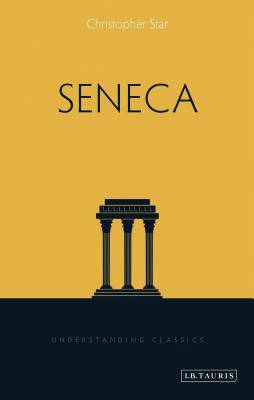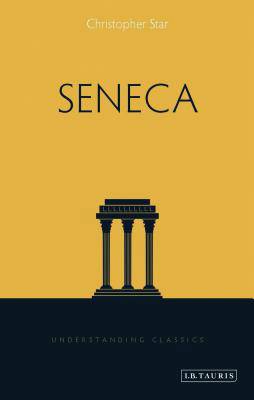
- Afhalen na 1 uur in een winkel met voorraad
- Gratis thuislevering in België vanaf € 30
- Ruim aanbod met 7 miljoen producten
- Afhalen na 1 uur in een winkel met voorraad
- Gratis thuislevering in België vanaf € 30
- Ruim aanbod met 7 miljoen producten
Zoeken
Omschrijving
After centuries of neglect there is renewed interest in the life and works of Lucius Annaeus Seneca (or Seneca the Younger, c 4 BCE-65 CE). At one time an advisor at court to Nero, Seneca and his political career came to ruin when he was implicated in a later plot to kill the capricious and matricidal emperor, and compelled to commit suicide. Discredited through collusion, or at least association, with a notorious and tyrannical regime, Seneca's ideas were for a time also considered derivative of Greek stoicism and thus inferior to the real thing. In this first in-depth introduction to be published for many years, Christopher Star shows what a remarkable statesman, dramatist and philosopher his subject actually was. Seneca's original contributions to political philosophy and the philosophy of the emotions were considerable. He was a favourite authority of Tertullian, who saw Seneca as proto-believer and early humanist. And he is a key figure in the history of ideas and the Renaissance, as well as in literature and drama. This new survey does full justice to his significance.
Specificaties
Betrokkenen
- Auteur(s):
- Uitgeverij:
Inhoud
- Aantal bladzijden:
- 208
- Taal:
- Engels
- Reeks:
Eigenschappen
- Productcode (EAN):
- 9781848858893
- Verschijningsdatum:
- 30/12/2016
- Uitvoering:
- Hardcover
- Formaat:
- Genaaid
- Afmetingen:
- 158 mm x 215 mm
- Gewicht:
- 362 g

Alleen bij Standaard Boekhandel
+ 181 punten op je klantenkaart van Standaard Boekhandel
Beoordelingen
We publiceren alleen reviews die voldoen aan de voorwaarden voor reviews. Bekijk onze voorwaarden voor reviews.











